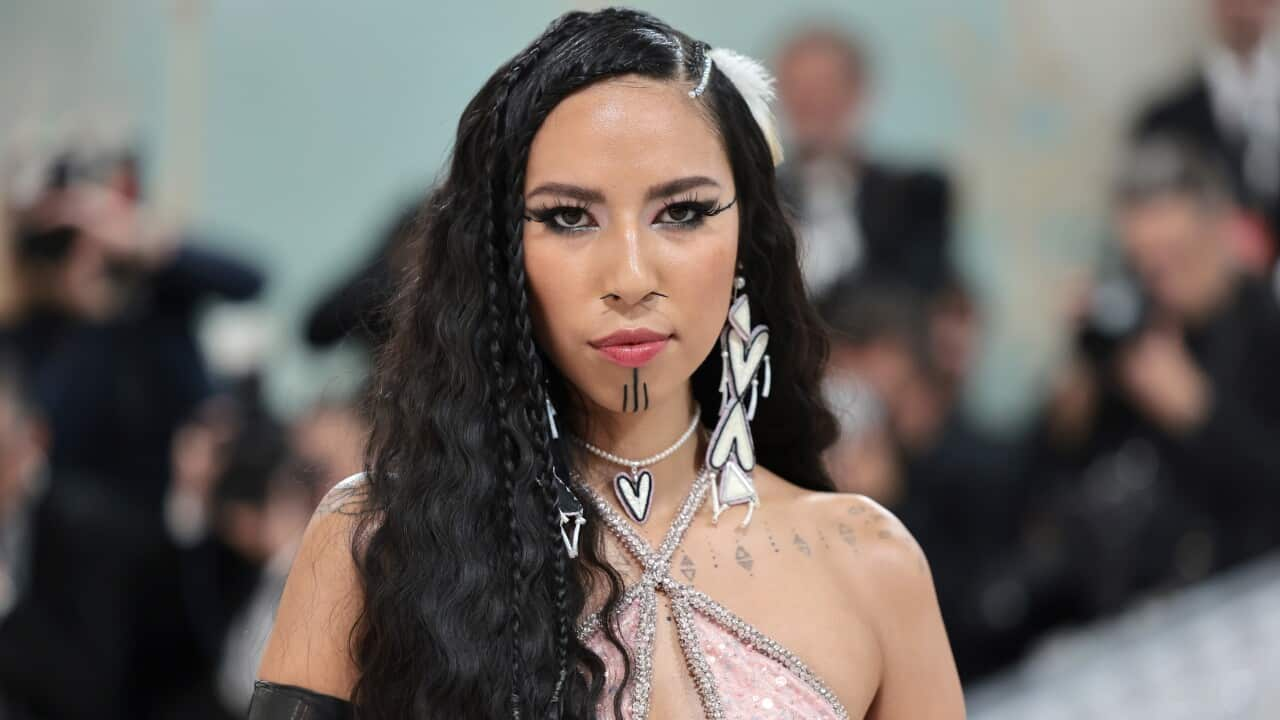The Met Gala is here again and to the delight of fashionistas, First Nations model and activist Quannah Chasinghorse has taken another turn on the famed red carpet.
A member of the Hän Gwich’in and Oglala Lakota tribes, Chasinghorse is as well-known for her support environmental causes as she is for her showstopping looks.
Chasinghorse was raised mostly on her traditional lands in Alaska, and spoke recently of the impact her childhood made on her, especially the influence of her mother.
"My [mum] did a really good job making sure that me and my siblings understood that, as Native people, we walk in two worlds and we have to navigate them both in very different ways," she told The Cut.
Pink, pearls and porcupine quills
Chasinghorse shot to model fame after Calvin Klein selected her for a youth campaign at the end of 2020. Her star has since risen rapidly, with this years outing marking her third Met Gala appearance.
This year saw the 21-year-old step out in an arresting halterneck pink tulle and satin dress, studded with sparkling stones and offset by black vinyl opera gloves.
Always looking to highlight the work of Indigenous designers, Chasinghorse sported earrings by Sota Scowi Designs, incorporating porcupine quills, pearls, beads and silver.
As ever, Chasinghorse's traditional facial tattoos provided a glamorous flair. The hand-poked tattoos, Yidįįłtoo, are given to a person to symbolise overcoming generational and personal traumas.
The price of breaking barriers

Quannah Chasinghorse arrives for the 2023 Met Gala at the Metropolitan Museum of Art in New York. The Gala raises money for the Metropolitan Museum of Art's Costume Institute. Source: AFP / ANGELA WEISS/AFP via Getty Images
Chasinghorse said her outfit was in protest of the theme, In America.
“I did not celebrate American independence (nor will I ever), I celebrated my Indigenous bloodlines coursing through my veins . . . and sacred to my heart,” she said at the time.
“Over and over again my people fought genocide and we are still here!”
Chasinghorse’s debut was one of the first displays of traditional Indigenous design on the Met Gala carpet.
“It truly is an empowering feeling knowing that my presence brings much-needed visibility to Indigenous beauty, fashion, art, and our communities, along with many of the things we face as a collective,” she said.












